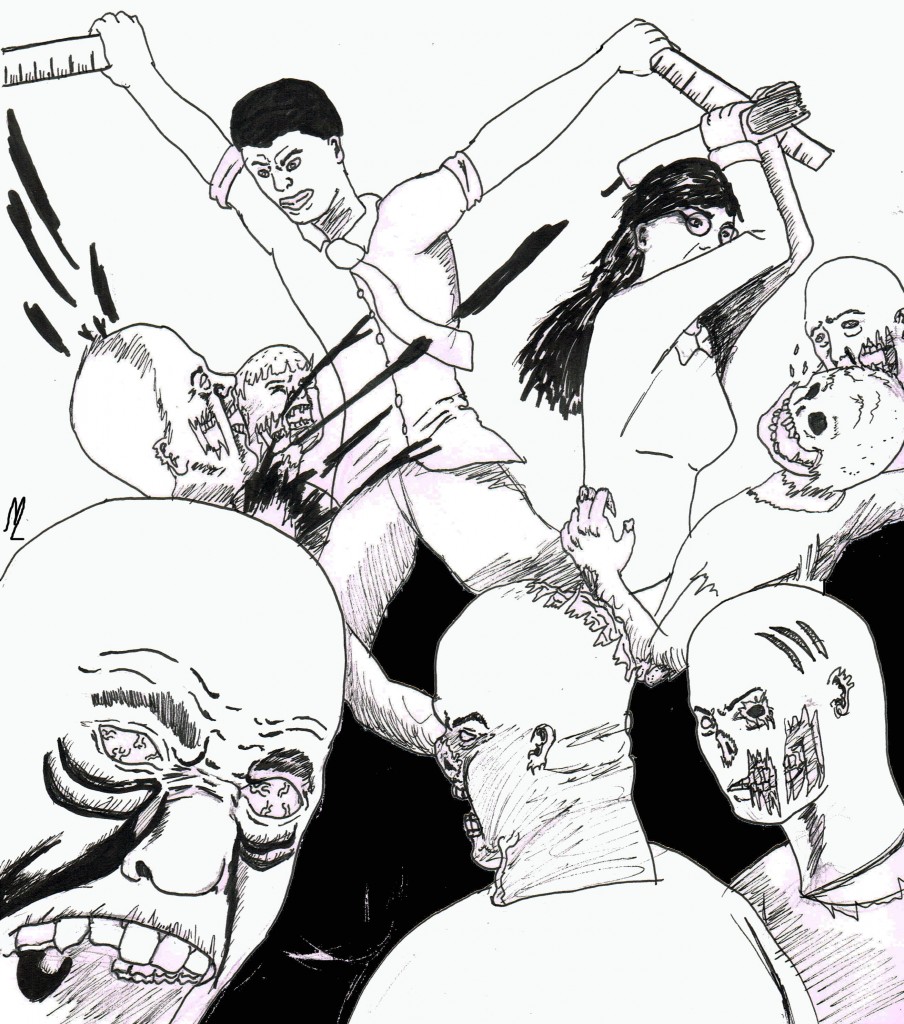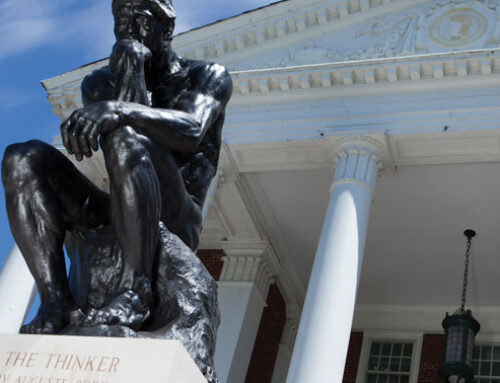By Lee Cole–
Run for the hills! Zombies!
‘Professors vs. Zombies’ pits the academic community against the undead horde.
Zombies have increased in popularity tremendously over recent years. Whether it’s AMC’s “Walking Dead,” more comedic zombie films like “Zombieland” or “Shaun of the Dead,” or zombie novels like those of Max Brooks, zombies seem to be here to stay, and Americans can’t get enough of them.
But what could account for the recent interest in zombies? This was one of the major topics at the “Professors vs. Zombies” conference held April 13 and 14. Professors from both the Louisville community and around the United States participated. U of L’s own Dr. Aaron Jaffe spoke on the recent popularity of zombies, showing a chart that depicted all the mentions of the word zombie in Google’s massive collection of archived print materials in the last 200 years. “Two hundred years ago, there were no zombies. Around 1900, there’s a little murmur.
There’s a bit more commotion in the mid-twenties, the stirring of interest in Haitian historical zombies, stoked by William Seabrook, Zora Neal Hurston. Hollywood takes over and thereafter, business is booming in zombieland.”
Several forms of zombies were discussed, from philosophical zombies to the run-of-the -mill brain-eating variety. Clips from Romero films were prevalent and “The Walking Dead” featured both the television series and the original comics. Even zombie dance moves were discussed, with emphasis on Michael Jackson’s “Thriller” and, more recently, Kanye West.
Film and television have been the primary catalysts for the growing zombie horde. But it should be made clear that no one on the conference’s panels believed in real zombies. Because the zombie is such a seemingly lowbrow figure, it was interesting to hear academics talk about the zombie as an abstract entity, considering its historical and cultural significance.
While the walking dead are devoid of life, the zombie as a meme is thriving. Many of the talks were concerned with how the zombie operates at a meme, and what, if anything, it can tell us about our society.
In a talk entitled “‘We are the walking dead’: The Undead Apparatus of Un‐essence,” Ph.D. student Seth Morton said “the zombie questions the constitutive structure of life,” and that it “makes life its theme, rewriting the terms through which something like life, or politics, can be talked about.”
Steven Pokornowski, a Ph.D. student from University of California, Santa Barbara, suggested that “the emergence of the zombie and the virus at the same cultural moment within America is more than a coincidence,” and went on to say that the zombie is an analogue for how we view the Other and a way of justifying contemporary geopolitical atrocities.
Most people wouldn’t think of zombies in these terms, but the panels and the discussions were dead serious, or maybe “undead” serious. Dr. Jaffe has taught multiple zombie-themed classes here at U of L, and the zombie seems to be picking up steam as a valuable and popular critical lens through which to view our modern situation. There has to be some reason why zombie literature and films have been so successful in the new millennium, and the speakers at this conference suggested that the zombie is so relatable because it fits so well into our current global situation. Indeed, the zombie has grown from being a localized phenomenon, found only in Haiti for most of the first part of the twentieth century, to become something recognized worldwide.
It’s unclear which side won out in the battle, but at least we know that in the event of a zombie apocalypse, our valiant professors will be ready to analyze the situation and inform the encroaching horde that they are personified symbols for existential angst, useful metaphors in bio-politics and analogues for the socially and culturally oppressed.
[email protected]
Photo: Eric Voet/The Louisville Cardinal







